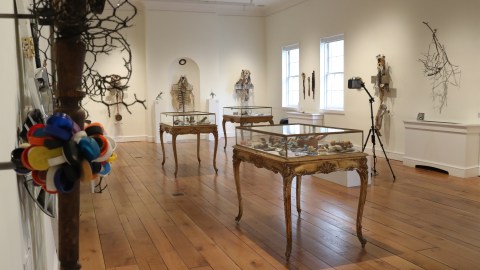This week’s Musing is about an article features in Dispatches from the future of Museums last week: “Gates’ $100M Philanthropic Venture inBloom Dies after Parents Say “No Way” (Nonprofit Quarterly). It’s about the demise of a student data collection project started only 3 years ago with $100 million in funding from the Gates Foundation and the Carnegie Corporation of New York. That project, inBloom, is shutting down because of public concerns about the collection and storage of data about children. Many parents, and educators, were queasy about the amount of personal data to be collected and dubious about how it would be secured. (I saw with wry amusement that one of the tags NPQ uses to index the story is “disaster.”)
I want to draw your attention to three quotes in the article:
- The CEO of inBloom notes, in retrospect, “building public acceptance for the solution will require more time and resources than anyone could have anticipated.” (As in, “we forgot to include the parents in discussions about how to design and run the project.” Oops.)
- An education blogger is quoted as saying “Our considerations of privacy will remain divorced from learning…until we recognize and acknowledge that students (or their parents) need to be the ones to control and reflect on any information that is collected about learning.” (I agree! Giving people access to and control over their data is going to be crucial to buy-in, whether you run a social media platform or a school system.)
- The author of the article concludes that “finding experienced grantmakers like Gates and Carnegie misreading the interests and desires of the parents and educators who were purportedly the intended beneficiaries is surprising, if not shocking. It’s an unfortunate reflection of the top-down approach of some foundations, issuing prescriptions for the benefit of the public even if that public doesn’t buy in.” (See my thoughts on this below.)
When I factor this “disruptive event” (the closing of inBloom) into the interacting trends of big data and rising concerns about privacy, here’s what occurs to me:
I speculated, in TrendsWatch 2014, that children would be the first group to experience the promise and perils of ubiquitous data collection on health, education and culture. This story demonstrates both the eagerness of some (educators, funders) to jump start that process, and the ferocious backlash it can create. The same parental impulse that might be harnessed to support big data to ensure the health and well-being of kids, is a powerful countervailing force if that data is perceived as a threat. Lesson–bring the parents onboard from the very beginning, even if researchers fear that their input will muddy the technological perfection of the project.
Sometimes philanthropy does more harm than good, particularly if it takes a one-size-fits-all “we experts know best” approach. This attitude may be tolerated (if resented) in third world countries or poor communities that need the money too much to complain. It ain’t gonna fly in Westchester. Educational reform, whether it is integration of big data, creation of museum charter schools, or the decision to embrace or reject testing, is going to play out on a very local scale, in many different ways, in the US.
As museums explore big data AND educational reform, we would do well to remember both these points.







